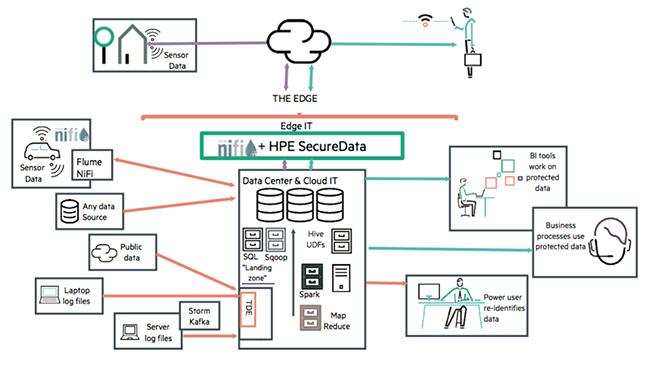The direction and pace of innovation in the big data security market are largely determined by the strategic initiatives of its most dominant players. A careful study of these Big Data Security Market Market Leaders reveals a clear focus on platform integration, AI-driven automation, and the simplification of complex security challenges. These leaders, comprising a mix of cloud hyperscalers, legacy IT giants, and top-tier cybersecurity firms, are not merely selling products; they are architecting comprehensive security platforms designed to provide end-to-end protection for modern data ecosystems. Their strategies are shaped by the urgent need for solutions that can scale to petabytes of data, adapt to dynamic cloud infrastructures, and satisfy a growing web of global data privacy regulations like GDPR and CCPA. The market's significant growth provides the context for these strategies, as leaders jockey for position in a rapidly expanding field. The Big Data Security Market size is projected to grow USD 40 Billion by 2035, exhibiting a CAGR of 18.96% during the forecast period 2025-2035. To capture this growth, market leaders are pursuing multi-faceted strategies that aim to embed security into the very fabric of the data lifecycle, transforming it from a peripheral add-on into a core, enabling function for data-driven organizations.
A cornerstone of the market leaders' strategy is the concept of a unified security platform. Instead of forcing customers to stitch together a dozen disparate security tools, leaders like Microsoft, Palo Alto Networks, and IBM are focused on providing a single, integrated platform that offers visibility and control across the entire data estate. Microsoft’s strategy is exemplary, deeply weaving security into its Azure cloud and Microsoft 365 ecosystem. Services like Microsoft Purview for data governance and Microsoft Sentinel for security analytics work seamlessly with Azure data services, providing a cohesive experience for customers. This platform strategy creates a powerful competitive advantage by reducing complexity, lowering integration costs, and creating a sticky customer relationship. Similarly, Palo Alto Networks' Prisma Cloud platform follows a "code-to-cloud" strategy, aiming to secure applications and data from the moment code is written through to runtime in a multi-cloud environment. This holistic approach is highly appealing to enterprises struggling with the fragmentation of their security tooling and a lack of centralized visibility, which is a common problem in complex big data architectures. This platform-centric approach is a defining characteristic of market leadership in the current environment.
Another critical strategic pillar for market leaders is the heavy investment in Artificial Intelligence (AI) and Machine Learning (ML). Given the sheer volume and velocity of big data, manual security monitoring and threat hunting are no longer feasible. Leaders are therefore differentiating themselves by building "intelligent" security solutions that can automate the detection of threats and vulnerabilities. For example, AI/ML algorithms are used to establish a baseline of normal data access patterns and user behavior. Any deviation from this baseline, such as a user suddenly accessing an unusually large volume of sensitive data, can automatically trigger an alert or a response, such as blocking access. Companies like Darktrace and Varonis have built their entire value proposition around this User and Entity Behavior Analytics (UEBA) capability. Even the major platform vendors are heavily integrating AI into their offerings; for instance, AWS Macie uses machine learning to discover and classify sensitive data within S3 buckets, and Google's Chronicle uses its massive analytics capabilities to hunt for subtle threats across petabytes of security telemetry. The leaders who can most effectively harness AI to reduce the noise of false positives and empower security teams to focus on genuine threats will ultimately provide the most value and command the market.
Top Trending Reports -
GCC Digital Advertising Market



